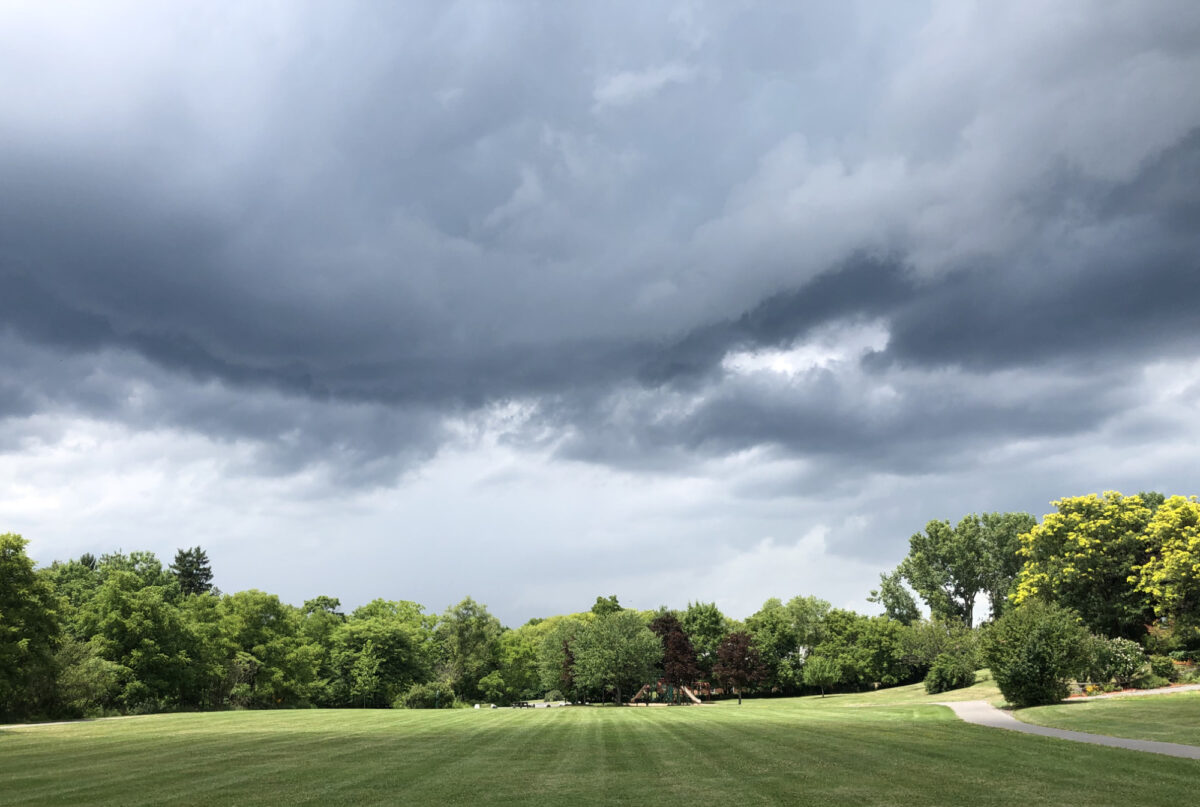Quick Answer
Weather forecasts have gotten much better than they were a few decades ago, but it's still difficult to predict the weather a week or two in advance because weather is a highly complex system that depends on initial conditions. In other words, tomorrow's weather depends strongly on today's weather, and a small change today can lead to a big difference in the weather a few days from now.
Climate is also a complex system, but it's an average of decades of weather patterns in a region, and it changes much more slowly than weather. Because of this, it's easier to predict climate than weather.
Image above: Ingrid Zabel for PRI's Earth@Home project (CC BY-NC-SA 4.0 license).
Weather and climate are complex systems, but they are somewhat predictable. The unpredictable character of complex systems comes from their sensitivity to changes in the conditions that control their development.
Weather is a highly complex mix of events that happen in a particular place on a particular day, including small changes in rainfall, temperature, humidity, and other factors that can cause weather to vary. These changes are under continual observation, and, since current conditions are the starting point for forecasting future conditions, these observations are used to update weather predictions in real time. This is why tomorrow’s weather forecast is more accurate than next week’s.
Climate is the longer-term generalization of a region’s weather—the average of decades of weather patterns in a region. Although weather changes rapidly on human timescales, climate changes more slowly. And just like with weather forecasting, current observations are input to climate models to make them more robust.
Accurate prediction is a matter of choosing the right timescale—days in the case of weather, and decades to centuries in the case of climate, using every available observation to update the predictions. As an example, we can predict with a high degree of confidence for Chicago, Illinois that January in the year 2050 will be colder on average than July in the year 2050. We also have high confidence that the average Chicago temperature in 2050 will be lower than that of Dallas, Texas—that’s climate. But we can’t predict for these places on any given day during January and July of 2050 what the temperature will be, or whether it will rain or snow. That’s weather, and it cannot be predicted that far in advance.

Image by Ingrid Zabel for PRI’s Earth@Home project (CC BY-NC-SA 4.0 license); photo of Chicago by Pexels, from Pixabay
Learn More
Digital Encyclopedia: Climate is a System



